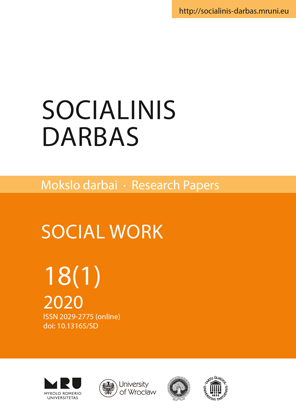METACOGNITIVE AWARENESS IN IRANIAN UNIVERSITY STUDIES: AN OVERVIEW FOR FUTURE DIRECTION
METACOGNITIVE AWARENESS IN IRANIAN UNIVERSITY STUDIES: AN OVERVIEW FOR FUTURE DIRECTION
Author(s): Marjan Masoodi, Tomas ButvilasSubject(s): Higher Education , Educational Psychology, Cognitive Psychology
Published by: Mykolas Romeris University
Keywords: metacognitive awareness; metacognitive instructional practices; roles of metacognitive awareness; Iranian university studies;
Summary/Abstract: The purpose of this article is to overview and analyze the discourse pertaining to metacognitive awareness to disclose the trend, diversity of approaches and the complexity of the concept in Iranian university studies. A systematic literature review was performed to include 110 published papers between October 2011- August 2019 searched on Scopus and ERIC databases. Then, after meticulously reading the abstract, fifty articles were chosen for analysis. Finally, a total of twenty-two papers were considered in our study. The findings from this analysis reveal that the growing studies mostly are empirical and in the context of English as a foreign language when metacognitive awareness addresses the main objectives of the research. Besides, the themes which are associated with metacognitive awareness are language skills including reading, writing and listening, language learning strategies, lecturers’ attitudes, knowledge and practice, cross-cultural comparison, efficacy, components and model, technology, and problem-solving. Furthermore, the most prominent metacognitive practices are prompts, reflective writing, interactive-reflective activities, and modeling respectively. Moreover, three metacognitive awareness roles of measured quantitatively, measured qualitatively and instructional can be investigated. Since the most frequent role is metacognitive awareness measured quantitatively (questionnaire), researchers might wish to use various types of measurement to triangulate data from different sources to better understand the complex concept of metacognitive awareness. Based on the results of this overview, since studies are mostly on learners’ regulation of cognition not on the knowledge of cognition, it is recommended to delve deeper into the measurement of knowledge of cognition. A further study can be conducted to consider metacognitive training for lecturers which is absent in previous studies. The findings of this study might have implications for university lecturers and researchers in the field of teaching and learning to realize what has already been conducted and figure out an appropriate direction to what is still required to be carried out in future research.
Journal: Socialinis darbas
- Issue Year: 18/2020
- Issue No: 1
- Page Range: 5-26
- Page Count: 22
- Language: English

